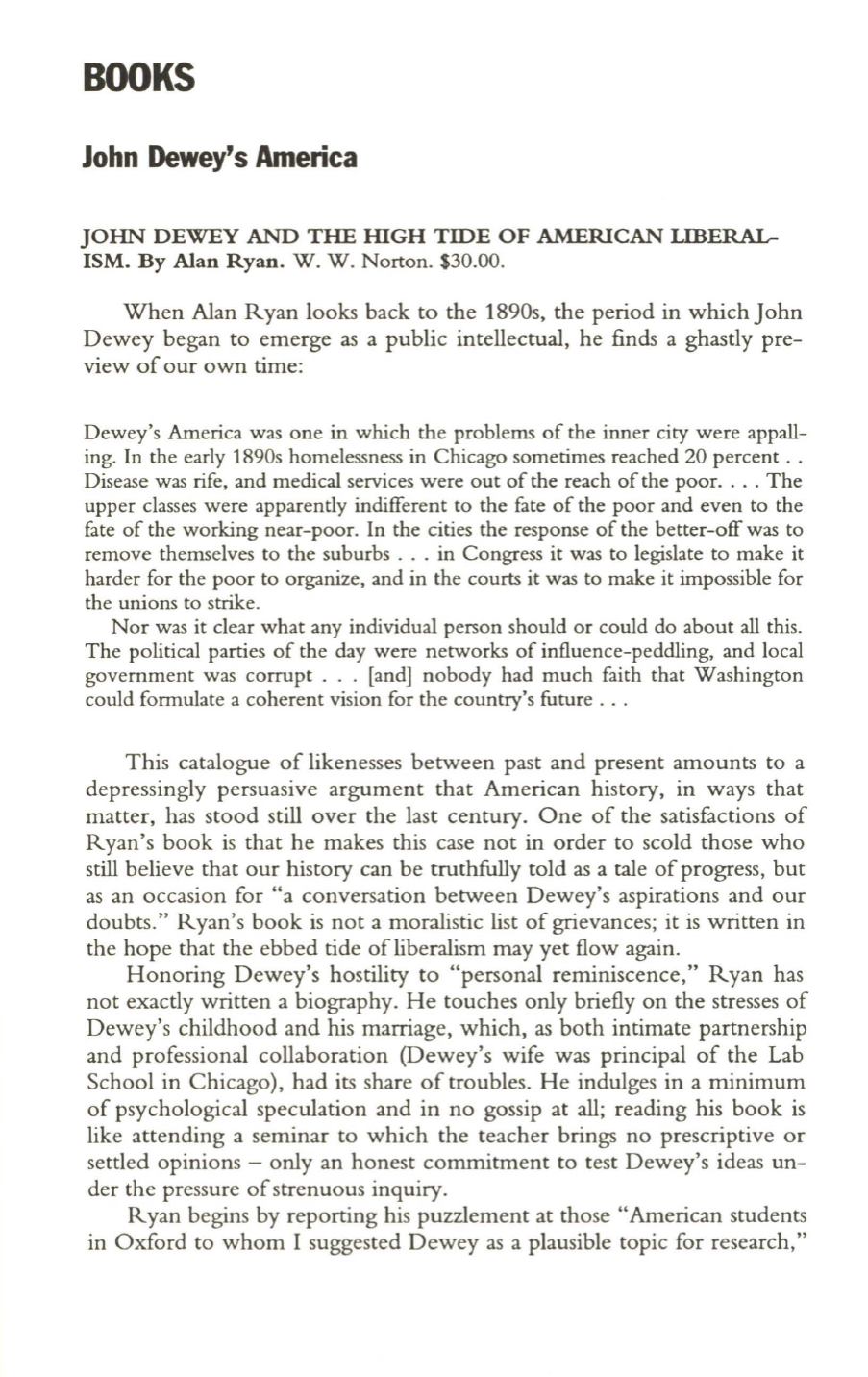
BOOKS
John Dewey's America
JOHN DEWEY AND THE HIGH TIDE OF AMERICAN LIBERAL–
ISM. By Alan Ryan.
W. W. Norton. $30.00.
When Alan Ryan looks back to the 1890s, the period in which John
Dewey began to emerge as a public intellectual, he finds a ghastly pre–
view of our own time:
Dewey's America was one in which the problems of the inner city were appall–
ing. In the early 1890s homelessness in Chicago sometimes reached 20 percent . .
Disease was rife, and medical services were out of the reach of the poor. ... The
upper classes were apparently indifferent to the fate of the poor and even to the
fate of the working near-poor. In the cities the response of the better-off was to
remove themselves to the suburbs ... in Congress it was to legislate to make it
harder for the poor to organize, and in the courts it was to make it impossible for
the unions to strike.
Nor was it clear what any individual person should or could do about
all
this.
The political parties of the day were networks of influence-peddling, and local
government was corrupt . .. [and] nobody had much faith that Washington
could formulate a coherent vision for the country's future .. .
This catalogue of likenesses between past and present amounts to a
depressingly persuasive argument that American history, in ways that
matter, has stood still over the last century. One of the satisfactions of
Ryan's book is that he makes this case not in order to scold those who
still believe that our history can be truthfully told as a tale of progress, but
as an occasion for "a conversation between Dewey's aspirations and our
doubts." Ryan's book is not a moralistic list of grievances; it is written in
the hope that the ebbed tide of liberalism may yet flow again.
Honoring Dewey's hostility to "personal reminiscence," Ryan has
not exactly written a biography. He touches only briefly on the stresses of
Dewey's childhood and his marriage, which, as both intimate partnership
and professional collaboration (Dewey's wife was principal of the Lab
School in Chicago), had its share of troubles. He indulges in a minimum
of psychological speculation and in no gossip at all; reading his book is
like attending a seminar to which the teacher brings no prescriptive or
settled opinions - only an honest commitment to test Dewey's ideas un–
der the pressure of strenuous inquiry.
Ryan begins by reporting his puzzlement at those "American students
in Oxford to whom I suggested Dewey as a plausible topic for research,"


